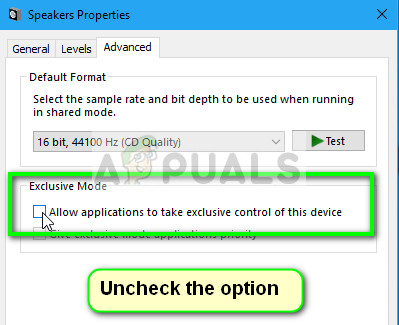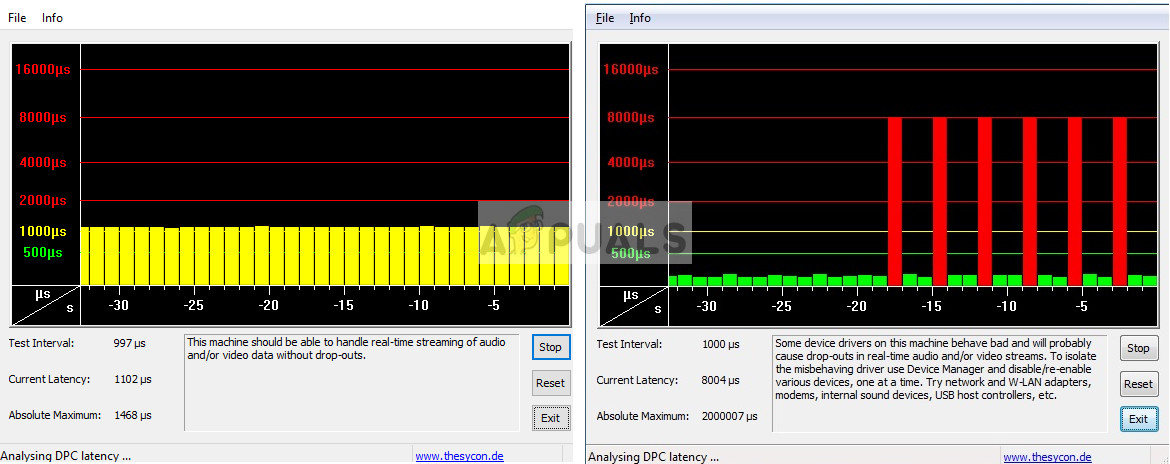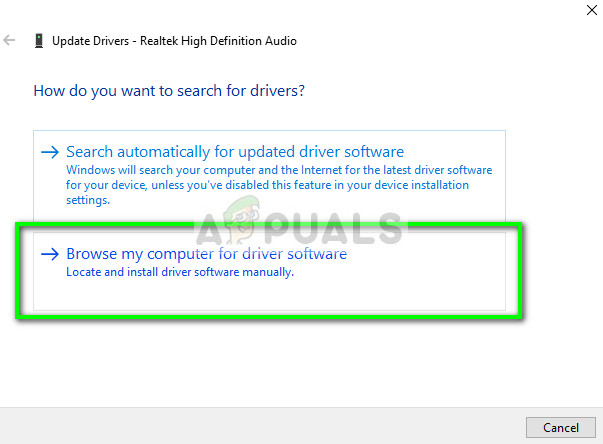There are very simple fixes to the problem. We have listed them down with the easiest on the top with increasing difficulty towards the bottom. Before you start with the troubleshooting, make sure that your hardware isn’t damaged. This can be guessed if some water was induced in the speakers or if the laptop fell down.
Solution 1: Checking Audio Format
Windows has an option to change your sound quality according to your speakers. You can set CD quality, DVD quality or Studio quality. The frequencies vary in all these options accordingly. The maximum being 192000 Hz with the lowest 44100 Hz. There was a lot of feedback where changing the audio format of the sound would solve the crackling issue in laptops.
Note: You can always try changing the sound formats to different values and keep checking if this solved your problem.
Solution 2: Disabling Audio Enhancements and Exclusive mode
Some sound drivers use enhancements in an attempt to improve your sound quality. If these properties are not compatible or if your CPU is being overloaded a lot, this can result in some major problems. We can try disabling the audio enhancements and check of the sound quality gets better. Not all sound drivers perform this function. They may have the Enhancements tab renamed as sound blaster. In that case, we can try disabling all the effects to the audio.
Solution 3: Checking DPC Latency
The audio crackling on your laptop might also be caused by DPC Latency. DPC is also known as “Deferred Procedure Call” and it is a part of Windows that handles the hardware drivers. If some driver takes too long to execute its operation, it can prevent other drivers such as your sound drivers to do their work smoothly. This may lead to audio problems such as buzzing, crackling, clicks etc. You should download DPC Latency Checker on your computer and run it. If the latency is in green or yellow bars, it probably means that there isn’t any latency problem. However, if the latency is in red, it means some driver isn’t working as required.
In the example to the left side, there is a driver causing high latency every three seconds or so. If this is a case, you have to troubleshoot yourself which driver is causing the problem by enabling and disabling each driver one at a time.
Solution 4: Disabling third-party programs
The crackling issue can also be traced back to third-party programs. There are various programs which tend to conflict with the audio system on your laptop. These third-party programs disrupt the initial operation of the sound drivers as the sound has to go through them before outputting to the speakers or the headphones port.
Check for your computer for any third-party sound programs such as Sonicmaster, Smartbyte etc. Disabling all these applications. If the applications are too many, you can boot your computer in safe mode and try troubleshooting there (all third-party applications are disabled by default in Safe Mode).
Solution 5: Installing High Definition Audio Device
Many users reported that installing High Definition Audio Device driver instead of IDT High Definition Audio CODEC or Realtek High Definition Audio etc. solved the problem for them. The sound quality of both the drivers is pretty much the same. The only loss of functionality which you will notice is the control panel which only Realtek provides.
Note: Also, try to disable the Intel SpeedStep Technology from the Bios and If this doesn’t work, try downloading the drivers from your manufacturer’s website and install them using the method listed above. In most cases, this also solved the problem.
Fix: Laptop Speakers not WorkingFix: Realtek Drivers Causing Crackling Audio in Windows 11Fix: Audio Crackling Windows 10Crackling Sounds from iPhone X’s Earpiece










